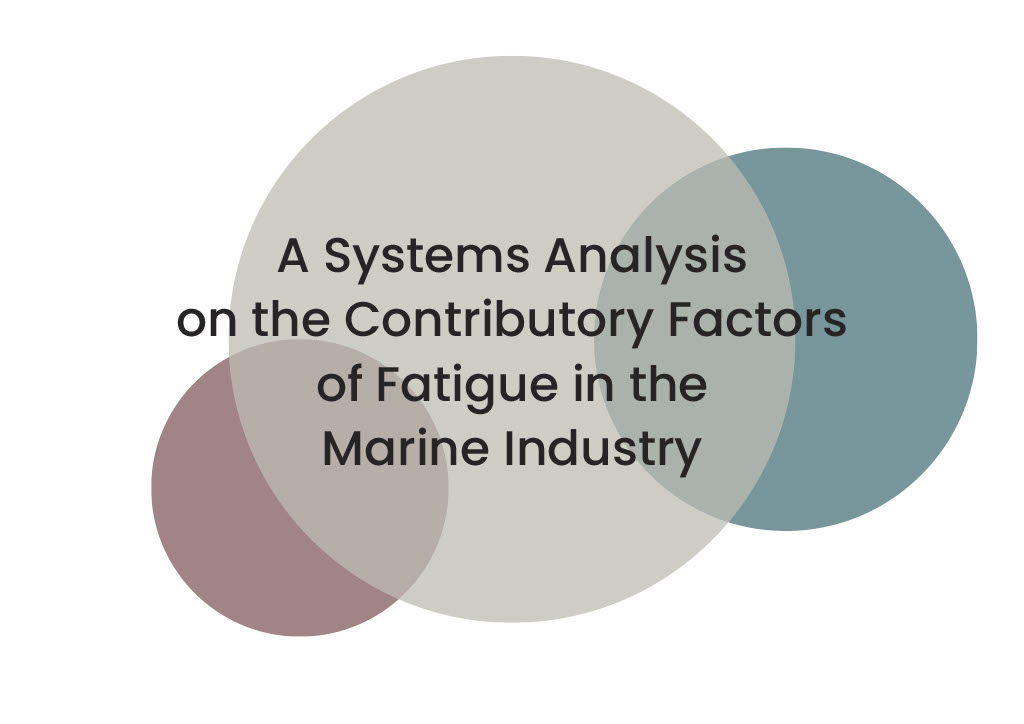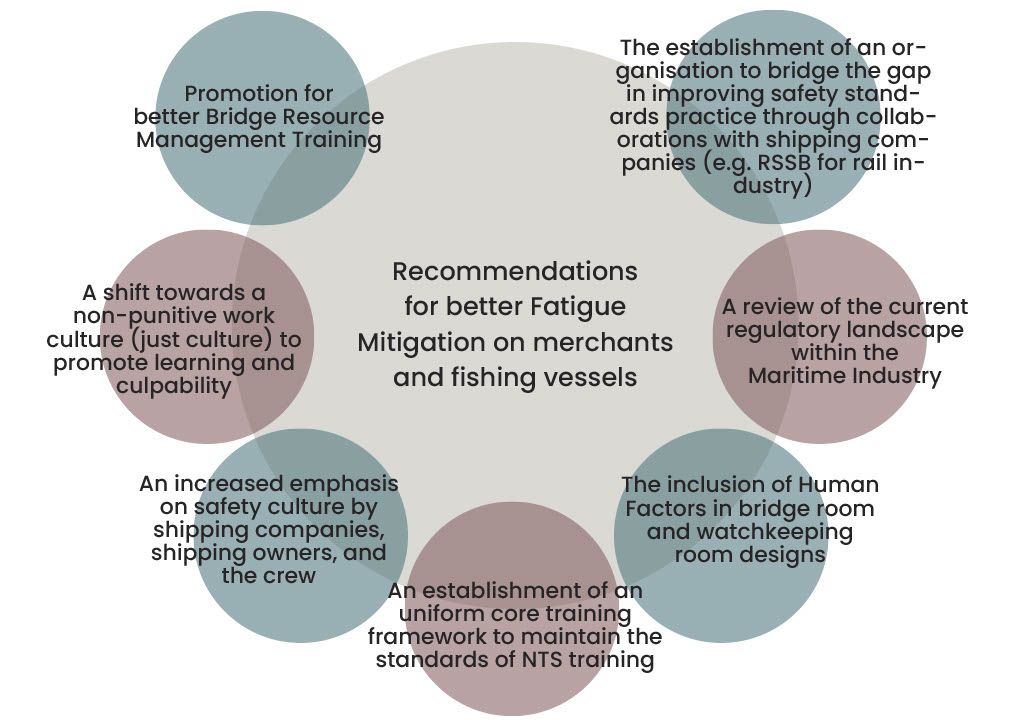Major project
A Systems Analysis on the Contributory Factors of Fatigue in the… [Read more]

Title Image
Mental and physical fatigue remains a prevalent issue within the marine industry. Despite the extensive research on fatigue in the industry, there is little literature on the causes of fatigue from a systemic thinking perspective. Moreover, there is an increasing need to integrate this perspective when investigating human factors within the marine industry as high-risk accidents commonly stem from both human and organisational factors.
Thus, the present study seeks to understand the causes of fatigue by adopting a systems analysis method, specifically the AcciMap, as this approach posits that decisions from levels higher up in a system (e.g., regulatory bodies, government etc.) influence the actions and behaviours of individuals at the lower level (e.g., crew, fishermen etc.).

This image provides a pictorial depiction of the numerous stakeholders present within the maritime industry.
The maritime industry comprises several stakeholders such as the crew, managers, ship owners, regulatory bodies. Given that this industry is such a large and complex sociotechnical system, it seemed appropriate to adopt a systemic thinking approach to understand the underpinning factors of fatigue.

This image depicts the aggregate AcciMap used to identify the contributory factors of fatigue
The AcciMap method was selected as this systems analysis method has the capacity to identify the deficiencies within the various levels of a system, in this case, the stakeholders within the marine industry. Due to its graphical representation, the AcciMap effectively illustrates the interactions of the events across and between the levels of the system. This provided opportunities for the researcher to understand how various decisions from the higher levels led to a ‘trickle down' effect and influenced the behaviours of those at the lower levels.

This mind-map illustrates several recommendations for better fatigue mitigation within the marine industry.
Some of the contributing factors of fatigue highlighted by the AcciMap were long working hours, irregular sleeping patterns, and insufficient manning levels. These findings were in line with evidence produced from previous studies. Additionally, the AcciMap highlighted several deficiencies which were key elements in fatigue, including a low emphasis on safety culture, unsatisfactory Non-Technical Skills (NTS), and inadequate regulations. Following these deficiencies, several recommendations to reduce the risk of fatigue among the workers on board the vessels were formulated
Lydea Soh
This research was conducted with the aim of understanding the leading causes of fatigue in the maritime industry based on a systemic thinking approach and to evaluate the applicability of a systems thinking framework within this industry. Thematic analysis was undertaken on accident investigation reports by the Marine Accidents Investigation Branch (MAIB) from the year 2000 to 2020 to identify these factors. Following the analysis, an aggregate AcciMap was then created to illustrate the factors underpinning fatigue and their interactions across and between the levels within the system.
Coming from a Psychology background, I wish to understand the cognitive and psychological aspects of human factors within high-risk industries and demonstrate how these aspects relate to quality human performance. My keen interest in human behaviour thus compelled me to conduct my research in this area. This research project was carried out with the aim of gaining a deeper understanding of human factors within the UK marine industry, as there is still a lack of much-needed emphasis on human factors within this industry.
Throughout this research, I was exposed to many instances that challenged my skills, such as using thematic analysis to conduct my research. This decision challenged my qualitative research skills and my ability in using qualitative coding programs (NVivo12) and has helped me gain confidence in my research and analytical abilities.
Following my completion in MSc Ergonomics and Human Factors, I wish to pursue a career in human factors within the transport or healthcare industry, particularly in understanding human errors and creating measures to rectify such errors with the hopes of ensuring safety within these sectors. I am also keen on pursuing a PhD in the near future to achieve my goal of advancing the field of human factors.
Major project
A Systems Analysis on the Contributory Factors of Fatigue in the Marine Industry
Awards
Awarded with a 2:1 in BSc (Hons) Psychology from the University of Manchester